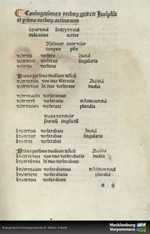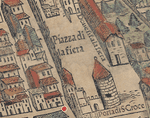The Greek booklet printed by Richard Pafraet of Deventer (1488): European Perspectives
Sabrina Corbellini and Margriet Hoogvliet Situated in the east of the present-day Netherlands, the city of Deventer was during the later Middle Ages part of the Holy German Empire. Due to its membership of the Hanseatic network of trading cities, Deventer was able to participate in commercial exchanges with far-away cities as Cologne, Bremen, Lübeck, […]



